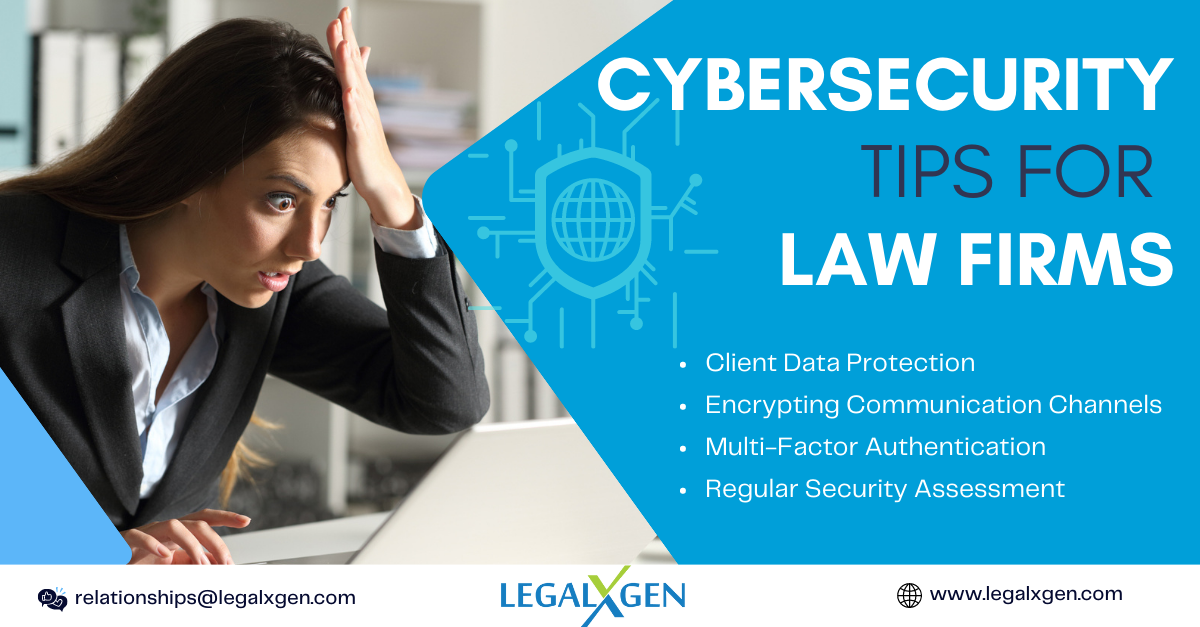

- In 2021, 60% of law firms experienced a data breach, compromising sensitive client data and undermining trust. (Source: American Bar Association).
- The average cost of a data breach for a law firm is estimated to be around $7.9 million (Source: IBM Security).
These breaches not only compromise sensitive client data but also expose legal firms to “Immense Financial and Reputational Risks”.
The financial impact, coupled with the potential loss of trust from clients, highlights the critical need for legal professionals to “Prioritize Robust Cybersecurity Practices”.
Let’s first understand what does it mean by “Cyberattack” and “Cybersecurity”?
| Cyber-attack | Cybersecurity |
|
|
Now! Moving onto the Proactive steps that legal firms must take to ensure Cybersecurity at their firm.
- Client Data Protection
In today’s world data is considered as soil. And legal firms handle a vast amount of sensitive client information, including financial records, intellectual property, and personal data. Hence, it becomes a top priority to secure these data. Creating a secure client data storage solution could help avoid unauthorized access possibilities of data breaches. This involves employing strong encryption protocols, stringent access controls, and regularly updating security patches to mitigate vulnerabilities.
In fact, by safeguarding client data, will demonstrate legal firms’ commitment to client confidentiality and comply with relevant data protection regulations. - Encrypting Communication Channels
In the world where sharing data over emails, messages and video calls is the norm, it becomes crucial to secure communication channels for maintaining client privacy. Encryption ensures that only authorized recipients can access and interpret the content, safeguarding against interception and unauthorized disclosure.
To reduce the potential of data breaches and ensure the confidentiality of client interactions, legal firms should train their staff on how to utilize encrypted communication technologies and encourage their adoption. - Multi-Factor Authentication
Let’s talk about the corporate buzzword “MFA”.
Now a days, passwords alone are no longer sufficient to protect against unauthorized access to sensitive systems and data. MFA requires users to provide multiple forms of identification, such as a password, a fingerprint scan, or a unique verification code, before granting access to sensitive information. So, in a way it provides additional layer of security. This extra layer of authentication significantly reduces the risk of unauthorized access, even if passwords are compromised.
By implementing MFA, legal firms can ensure that only authorized individuals can access confidential data and systems, mitigating the risk of cyberattacks and data breaches. - Regular Security Assessment
Constant evolution of cyberthreats has made it essential that law firms should perform routine security audits to determine weaknesses, evaluate the efficacy of current cybersecurity measures, and make the required corrections. It entails examining the software configurations, access restrictions, and security rules as well as the network infrastructure.
Legal companies can proactively identify and repair any potential gaps by conducting routine audits before cybercriminals can take advantage of them. It also serves as proof of diligence and support legal companies’ compliance with ethical standards and privacy legislation.
Clients’ confidence in lawyers to handle their most private cases is strengthened by this continual effort in staying ahead of cyberthreats. LegalxGen ensures this level of security. To explore further, avail a FREE DEMO now, and we would be pleased to help you secure your firm from any kind of cyber-attacks.

Market Research Analyst with a Master’s in Marketing and Analytical Experience.
 English
English French
French German
German